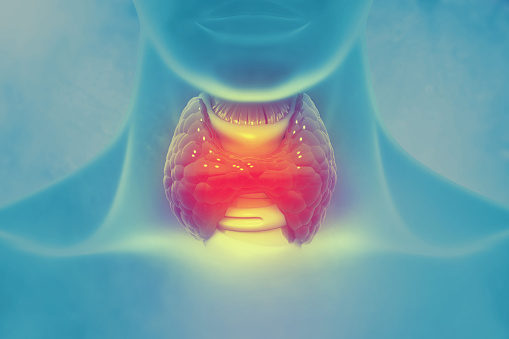Low Iodine Diet
- An important part of radioiodine treatment – allows radioiodine to enter thyroid cells (normal or cancerous that were not visible to the surgeon or could not be removed)
- Generally started 2 weeks before the radioactive iodine therapy for thyroid cancer patients.
- Usually needs to be continued until the whole-body-scan is completed (7 days after the radioactive iodine is given)
- Goal is to have < 50 microgram of iodine per day for that period.
- It usually means you should eat home-made food using ingredients in the “allowed” column, while avoiding the “not allowed” ingredients.
| Food Group | Allowed | Not Allowed |
| DAIRY | None | Ice cream, cheese, milk, yogurt, sour cream |
| EGGS | None | All egg containing products |
| SEAFOOD | None | Specially shellfish, kelp, sardines, canned tuna |
| SALT | Non-iodized salt | Iodized salt, Sea salt |
| MEATS | Fresh chicken, turkey or beef | Canned, dried, salted, cured meats (sausage, ham, chipped beef,liver, beef stew, bacon, TV dinners, pizza, chili, lunch meats |
| GRAINS | Homemade rice, Oatmeal, Unsalted crackers, Rice cakes, iodine-free bakery products | Regular breads, processed cereals, pancakes, cookies, pastries, salted crackers, instant oatmeal |
| FRUITS | Fresh fruits & raisins | Prunes, canned fruits, dried fruits |
| VEGETABLES | Fresh or frozen vegetables | Canned vegetables |
- Avoid chocolate, molasses, soy products, Restaurant food & Asian food
- Avoid food or medicine containing iodine or red dye (many vitamin-mineral supplements)
- Any food that has any of these ingredients:
Iodates or Iodides
Algin or Alginates
Agar-Agar
Carrageenan
(such as Store-bought bread or bakery products because they are made with iodate bread conditioners)
Post Disclaimer
We are not your healthcare provider, and your use of this website does not establish a patient-client relationship. All the information contained on this website is for informational purposes only. No material on this site is intended to be a substitute for professional medical advice (diagnosis, treatment, testing or nutritional information). Always seek the advice of your physician or qualified healthcare provider with any questions you may have regarding medical or health-related conditions or treatment. Your healthcare provider knows your condition or situation well and can give you specific advice which would be appropriate for your condition/situation. Your healthcare provider can also guide you more accurately about injection techniques, dietary interventions and the use of medical technology that is most pertinent and suitable for you. Please do not disregard professional medical advice or delay in seeking it because of something you may have read on this website.

